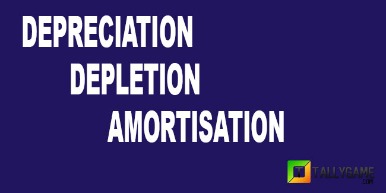
Whether what is an accounts receivable ledger you’re running payroll domestically or internationally, you must ensure you’re operating in compliance with the employee’s payroll laws. Through Deel, you can unify contractor payments, employer of record (EOR) services, and payroll management in one platform. This type of data is valuable to criminals and they are always looking for insecure points of entry. To reduce the risk of a security breach when you outsource, make sure the partner you choose has strict security measures in place. For example, they should comply with data protection laws such as the GDPR.
In the modern business context, however, payroll most often refers to the process of paying employees or to the entities responsible for carrying this out. Making sure that payroll is delivered accurately and how to assign a deduction, bonus or benefit to an employee on time is among your most important priorities as an employer. In fact, 69% of American workers say that they would experience financial difficulties if their paychecks were delayed just one week.
- It’s no surprise, then, that many organizations are outsourcing their payroll — or at least considering it.
- Then the appropriate amount of taxes must be calculated and subtracted from the gross pay to determine a net amount.
- Meeting your payroll requirements will be a breeze, and you can support team members anywhere in the world.
- For accurate payroll, you’ll need to collect personal information including birthdates, Social Security numbers, addresses, wages, and more.
Is payroll outsourcing a good idea?

Recent data from the Bureau of Labor Statistics shows that payroll and timekeeping clerks earn an average of $22.79 per hour or $47,390 annually. Now that we’ve mapped the pros and cons, let’s examine how outsourcing works. Keeping everyone in the loop helps manage expectations, ease any worries or uncertainties, and ensure your team feels informed at every step. Things can change fast and pivots can happen, but you don’t want to be locked into an agreement with a provider that can’t grow with you. To make your life significantly easier, you’ll want to use a payroll platform that can integrate seamlessly with your existing HR tech stack. Ideally, there will be an API option, too, so that you can customize your integrations.
If you’re hiring internationally, look for a global payroll provider like Deel that can take on the responsibility of navigating unfamiliar payroll laws and best practices for you. By outsourcing your payroll, you can minimize the number of mistakes — and the headaches that come with them. Global payroll providers use specialist software and are able to automate many processes, creating efficiencies and cost savings that just aren’t possible if you’re running your global payroll manually, in-house.
These mistakes can negatively affect your employees and ultimately result in employer/employee strain. Payroll figures are also necessary for tax purposes, both for business year-end income tax filing and for quarterly and annual payroll tax reporting. Keeping this information organized and easily accessible for future reporting or delivery to an accounting professional can take additional time each period. PEOs integrate payroll seamlessly with other HR functionality such as benefits administration, compliance management, and HR technology platforms. Having these capabilities consolidated under one provider dramatically simplifies operations. PEOs specialize exclusively in HR outsourcing and possess unmatched expertise in payroll, compliance, benefits, and other HR functions.
Payroll errors can be frustrating and costly to both employers and employees. For employees, a mistake in importance of monthly balance sheet reconciliation state tax deductions can require an unexpectedly sizable tax deduction from an employee’s final paycheck of the year, at a time that typically coincides with the holidays. Missed hours or improper pay rates can also inadvertently decrease an employee’s pay, which may cause frustration and lasting resentment.
Data security
The only types of businesses that identify payroll management as a core function are, well, the payroll outsourcing providers themselves. Outsourcing payroll stands to greatly reduce a major administrative distraction for most companies, allowing them to “cut the fat” from their employee rosters and keep their organizations focused on other tasks. The process of managing employee payroll is often time-consuming—unless, that is, another company is hired to take care of it instead. Payroll outsourcing can lead to big cost savings and provide access to payroll management experts, but doing so also comes with unique challenges and risks.
Communicate with your team
Hiring out the work can, when all goes well, provide significant advantages and cost savings. Another benefit to outsourcing is that payroll functions can be assumed by providers specializing in effective payroll management. For most companies, performing payroll functions in-house amounts to nothing more than an important housekeeping duty; the company itself is expert in something entirely different. A payroll outsourcing provider or “payroll service bureau,” on the other hand, may perform payroll functions and nothing else.
Why outsource your payroll to ADP?
This deep focus lets them stay updated on the evolving regulations across all jurisdictions. When you partner with a PEO, all required payroll tax returns and payments are handled end-to-end. This ensures filings are completed accurately and on time, without hassle. Even minor payroll mistakes can lead to employee dissatisfaction, tax penalties, and a damaged reputation.
